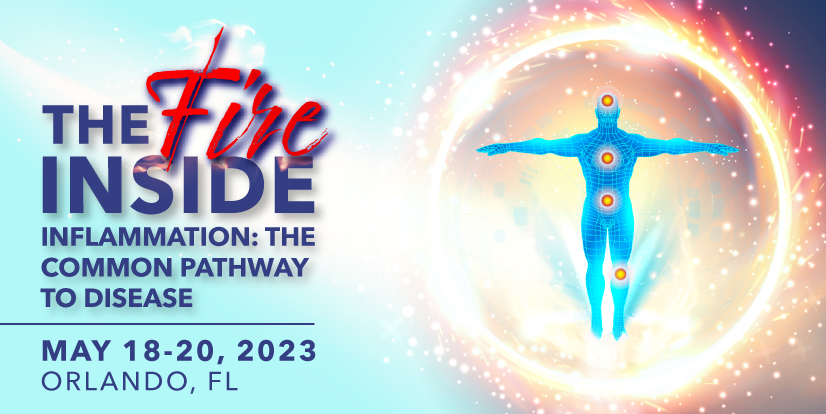Complex, heterogenous, and often debilitating, depression is a multifaceted condition that affects millions of people worldwide. According to current statistics, one in five Americans will experience major depressive disorder (MDD) in their lifetime, and many will not find relief from current therapeutic approaches. While there is an ever-growing list of potential causes of MDD, recent research suggests that inflammation in the body may be a contributing factor to the development and severity of depression. And the latest clinical trial data suggest that targeting and treating inflammation as the root cause may help clinicians provide more precise, personalized care to patients struggling with depression and help them achieve lasting mental and physical wellness.
Depression: A Global (and Growing) Problem
Major depressive disorder, or depression, is an often debilitating mental health condition that affects millions of people worldwide. In itself, depression is a risk factor for comorbidity, raising the possibility of obesity, diabetes, cardiovascular disease, chronic respiratory disorders, and other disorders. Depression is also the primary cause of suicide, a leading cause of death in the United States.
From the nine symptom criteria for major depressive disorder, there are 227 possible combinations, making it difficult to find an effective treatment for many people. While newer treatments such as ketamine are showing promise for some patients, they also come with a new set of risks, legal considerations, and side effects.
According to the latest data, an estimated 50% of depressed patients are inadequately treated, and 30% are resistant to current treatments. While antidepressants are a standard treatment for most depressive disorders, research suggests that inflammation may be a critical factor in disease progression and treatment resistance. Burgeoning evidence indicates systemic inflammation can cause or exacerbate depression in certain patients. Approximately 30% of depressed patients have elevated inflammatory markers, which are also associated with poor responses to antidepressant therapies.
Systemic, Chronic Inflammation
When the immune system mistakenly attacks healthy tissue, it leads to chronic inflammation, which can be detrimental to overall health. Chronic inflammation is becoming increasingly common in the global population due to various factors, such as poor diet and lifestyle patterns. The prevalence of chronic disease is rising simultaneously. In fact, the condition is one of the most common pathways to chronic illness.
Many lifestyle factors can stoke the flames of inflammation, including a pro-inflammatory diet high in sugar, refined carbohydrates, and processed foods. Lifestyle factors such as exposure to environmental toxins, sleep deprivation, chronic stress, low vitamin D, obesity, prediabetes, and smoking contribute to inflammatory conditions.
It’s important to note that chronic inflammation doesn’t always present itself with obvious symptoms, making it difficult to diagnose. However, identifying and addressing the root causes of chronic inflammation is crucial for preventing and managing depression and other associated health problems.
Investigating The Inflammation-Depression Connection
The link between chronic inflammation and depression is becoming increasingly clear, but the connection is complex. As Andrew Miller, a professor of psychiatry and behavioral sciences at the Emory University School of Medicine, tells The Washington Post, “the inflammation is killing us. And one of the ways that it kills us is by affecting the brain.”
Prolonged and elevated inflammation can lead to a breakdown in the barrier between the body and the brain, causing neuroinflammation and altering essential neural circuits, which can trigger depression in people at risk. This result in a leakier blood-brain barrier, which normally protects the brain from harmful molecules in the blood.
Caroline Ménard, an assistant professor of psychiatry and neuroscience at Université Laval and CERVO Brain Research, explains that a leaky blood-brain barrier can eventually cause tiny holes in the brain’s barrier. This allows inflammation to pass from the blood into the brain, which can alter the neurons and cells responsible for behavior and identity.
A mouse study conducted by Ménard and her colleagues found that chronic stress and inflammation caused the blood-brain barrier to leak in areas involved in depression, including the nucleus accumbens. Upon examining the nucleus accumbens in postmortem brain tissue of depressed male patients, the researchers found similar molecular changes in the blood-brain barrier.
Interestingly, there are sex differences in how inflammation affects the blood-brain barrier. In a 2022 study involving female mice, chronic social stress caused the blood-brain barrier to become leaky in a different part of the brain, the prefrontal cortex – a mood-related region. Postmortem brain tissue of depressed women revealed similar changes near the prefrontal cortex.
These findings suggest a possible mechanism for how inflammation affects specific depression-related brain parts more than others. As a result of a leaky blood-brain barrier, neuroinflammatory changes to nearby neurons could interfere with the reward circuit, contributing to depression.
The involvement of numerous biological systems alongside systemic inflammation highlights that depression is a whole-body problem that requires a whole-body approach to be solved.
A Review of the Current Research
Current research is shedding more light on the link between inflammation and depression, although the connection is not a recent discovery. It has long been known that depression can be a side effect of pro-inflammatory drugs such as vaccinations or interferon. This suggests a causative relationship, which Miller and his colleagues proved in a seminal study published in the New England Journal of Medicine.
The research team conducted a double-blind study of 40 cancer patients undergoing treatment with the inflammatory cytokine interferon-alpha. While none of the patients had depression at the start of the trial, the inflammatory agent caused the development of depression in many subjects.
Numerous studies have shown that individuals with depression often have higher levels of inflammatory markers in their blood, including C-reactive protein (CRP), interleukin-6 (IL-6), and tumor necrosis factor-alpha (TNF-alpha). Further research proves that patients with autoimmune diseases have inordinately high rates of depression. Postmortem brain samples from suicide deaths have shown more activity in the brain’s immune cells, which release inflammatory agents.
Depressed patients often lack motivation and the ability to feel pleasure, and studies have shown that inflammation is associated with reduced neural activity in the reward-related regions of the brain. Additionally, inflammation is associated with the activation of parts of the brain that feel social rejection, fear, and threats.
But the connection between inflammation and depression goes beyond neural activity and motivation. A review study found that pro-inflammatory cytokines directly affect important mood neurotransmitters like dopamine and serotonin and can also cause dysregulation of the hypothalamic-pituitary-adrenal (HPA) axis, central nervous system function, impaired neuroplasticity, and structural and functional brain changes.
Previous research has also revealed that indicators of inflammation can predict the severity of depressive symptoms. A study examining twins who share 100 percent of the same genes found that the twin with a higher CRP concentration was more likely to develop depression five years later.
Treating Inflammation Instead?
Anti-inflammatory drugs have shown promise in treating depression, yet their effectiveness can vary depending on the patient and their level of inflammation. As depression is a complex and heterogeneous disorder, there is a need for more research on such drugs in specific patient populations.
While there is no one-size-fits-all approach to treating depression, the growing body of research on the link between inflammation and depression suggests that targeting inflammation could be a promising strategy for some patients.
Personalized treatment plans that address inflammation levels and lifestyle changes may offer the most effective way to treat depression and improve overall mental health.
The Future of Depression Treatment
This new research opens up the possibility of a more targeted approach to treating depression that addresses the underlying inflammation that can fuel depressive symptoms. But the field needs more scientific evidence to support changes to first-line treatment guidelines.
A critical consideration for future research is the heterogeneity of patients and the differences in depression presentation, as well as their inflammatory profiles. More precise measurements of symptoms impacted by inflammation, such as anhedonia and psychosomatic slowing, may help to identify the subtle effects of different treatments. Future research will hopefully lead to the discovery of the first psychiatric biomarker based on clinical tests for inflammatory markers, which may help to differentiate the effectiveness of antidepressant treatment.
With a greater understanding of the relationship between inflammation and depression, researchers and clinicians can develop new treatment whole-person approaches that target inflammation. Addressing the root cause of inflammation through integrative approaches, such as dietary modifications, supplementation, and mind-body therapies, may augment new treatment protocols and benefit physical and mental health. In this way, clinicians may be able to improve patient outcomes for those who do not respond to current antidepressant treatments.
With the potential to revolutionize the standard of care for depression, further research into inflammation and its role in mental illness is necessary.

The Fire Inside: Inflammation: The Common Pathway to Disease
Functional medicine practitioners and modern health professionals have the unique opportunity to address the root causes of depression, including inflammation, and provide more personalized and effective care. By staying up-to-date on the latest research in the field, they can better serve patients and help them achieve lasting wellness. To learn more about inflammation as a root cause of disease, we invite you to attend the 31st Annual Spring Congress in Orlando, Florida, between May 18-20, 2023. Click here to learn more about the season’s biggest industry event.

